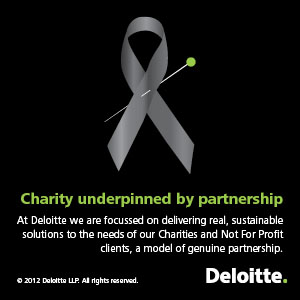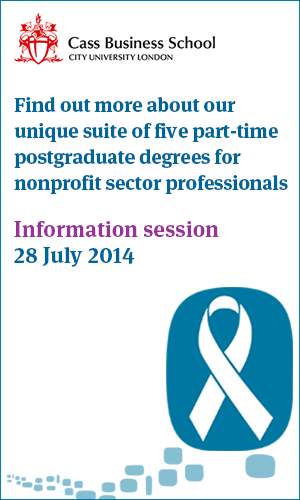NEWS – section 1
HMRC intensifies scrutiny of Gift Aid claims
HMRC has more than doubled the number of investigations it made into claims for Gift Aid last year, in a sign of intensifying scrutiny of tax relief on charity donations, says accountancy firm Wilkins Kennedy. According to figures it has obtained, HMRC carried out 1,057 checks and audits of charity claims for Gift Aid tax relief in 2012/13, up from 510 the year before. HMRC raised more than £6 million in additional tax as a result.
Wilkins Kennedy says that although some of this is likely to result from miscalculations and mistakes, the recent high profile controversy over the “Cup Trust” is spurring a drive by HMRC to uncover more cases of wrongdoing and claw back deliberately underpaid tax.
The Cup Trust is a children’s charity that came under investigation by the Charity Commission after claiming £46 million in Gift Aid, whilst paying out just £152,000 of the £176 million it received in donations to good causes.
John Howard, Partner at Wilkins Kennedy says “HMRC is on the look-out for charities it believes have been set up for tax, rather than charitable, purposes and will root out cases where the donors’ main aim is avoidance. Although cases of deliberate abuse or fraud are rare, when it uncovers anything suspicious, it’s going to use all the tools at its disposal to take action.
“However, what’s also worrying for the charity sector is that it seems to be uncovering so many instances where tax is being underpaid because honest mistakes are being made using Gift Aid. Those charities which haven’t got their house in order are still going to be penalised, and will have to pay it back with interest.”
Wilkins Kennedy says that as the Revenue steps up its compliance activity in the charity sector, its focus is likely to extend to a wider group of mid-sized charities.
Howard observes that one of the most common mistakes is failing to take down a Gift Aid declaration properly, particularly where donations are made over the phone. Moving to online systems can help avoid problems, but not all charities have the resources to put these in place.
Another common error is where Gift Aid is erroneously claimed on corporate donations because a wealthy donor has used a corporate structure to make a gift. In such cases, charities need to be able to prove that the donation comes out of the individual’s taxed income and is therefore eligible for Gift Aid relief.
Similarly, donations made as a result of sponsored activities can sometimes contain corporate donations, especially where employers have matched a staff member’s fundraising efforts.
The value of the corporate donation needs to be separated for the purposes of any Gift Aid claim.
Charities and other institutions to grow social investment
Institutional investors will be a key source of risk capital and long term finance for the UK social investment market as it continues to grow, according to a report from the Social Investment Research Council, which identifies two sets of opportunities for previously under-researched institutional investor groups.
These opportunities arise at different ends of the UK social investment market over the next five years: demand for risk finance capital estimated at approximately £500m to support early stage social sector organisations, and investment capital of £5bn to expand more established, mainstream social industries.
Charities, corporations, housing associations and family offices were found to be the most likely prime providers of the next £500m in required risk capital as they are primarily motivated to create impact as an objective of their investment activities or approach to service delivery.
The larger, more established end of the market is likely to be supported by a group of local authority pension funds who require substantial investment sizes and have created dedicated allocations to support social investments, as well as family offices and charitable endowments with capacity to consider larger investments in sectors that are close to their current areas of focus.
This potential future role for charitable organisations as providers of both risk finance and established investment capital to the market has been further supported by the Law Commission’s proposal to introduce a new statutory power for charities to make social investments.
The Social Investment Research Council's report recommends reviewing the use of charitable foundations’ capital for programme related investment and identifies a need for practical support for charities to do so, to help towards raising the next £500m in risk capital.
In order to attract institutional investors at the other end of the social investment market the authors (the Social Investment Consultancy in association with London Economics) highlight a need to improve awareness of mainstream investment opportunities, establish a single place for tracking fund performance, and create functionality to "tag" social investments within commonly used financial tools.
Increased experience sharing, improved data collection of deals done outside social investment funds and asset owners mandating fund managers to consider social investment would benefit efforts to raise finance across the market as a whole.
The UK social investment market has grown in recent years, surpassing £200m in value in 2011/12 . To date, finance has largely been provided by government, social banks and social Investment finance intermediaries, overwhelmingly in the form of secured lending (90% of the lending to the market in 2011/12).
Charity attracts supporters at Chelsea Flower Show
The Chelsea Flower Show is increasingly noted not just for its wonderful garden displays but also the substantial corporate hospitality put on for invited guests - on the site of gardens sponsored by the corporates. Charities too, with support from donors, have their own garden displays. This year ABF The Soldiers’ Charity, supported by Coutts and Bechtel, presented its first-ever garden at Chelsea. The garden, which won a coveted gold medal, was designed by Charlotte Rowe.
The project aimed to raise the profile of the charity and included private receptions around the garden for specially invited guests. Additional activity included World War One poetry readings by high profile VIPs like Stephen Fry and Rowan Atkinson, as well as a daily recreation of the trenches newspaper, The Wipers Times.

ABF The Soldiers' Charity was one of the charities at the Chelsea Flower Show to put on an attractive garden showing and receptions for potential and existing supporters.
Scottish charities confident about the future
A survey conducted by accountancy firm Scott-Moncrieff has found a renewed confidence amongst Scottish charities, with 94% responding that they are confident about the long term financial sustainability of their organisation. Within that 94%, 35% stated that they were "very" confident, and 59% were "quite" confident. The remaining 6% of respondents were "not very" confident.
Gillian Donald, charities partner at Scott-Moncrieff, says: “This was a surprising result. We didn’t expect confidence to be quite as high, but we’re pleased to hear that the sector is feeling buoyant.
"Much of this could come from the fact that charities, especially those which are dependent on government services and funding, have really struggled over the past few years, but have managed to turn the resilience they’ve needed during that time to confidence for the future. If they’ve made it this far, then they’re feeling positive about keeping going.”
When asked about the main challenge to their financial sustainability, "cuts to funding" (by government or local authorities) and "stretched management resources" were mentioned by 28% and 17% respectively.
Other issues raised were: lack of time for creative thinking (7%); capacity for change management (12%); re-tendering for services (11%); effective identification and management of risk (9%).
The remaining 13% of respondents highlighted a mix of other issues including falling donations and memberships, staff cost pressures and economic performance affecting investments.
Says Donald: “The Scottish charity sector has survived, if not entirely prospered, over the past few years. Furthermore, the fact that the survey responses were made with the knowledge of further significant cuts to be made this year provides an encouraging snapshot of the mood across the sector.
“Those charities dependent on private donations and public fundraising will be buoyed by the general upturn in the economy, and those which invest will benefit from increased portfolio yields as the markets regain lost ground.
“Ironically, the last few years have really boosted the strength of the sector; if not financially, certainly in terms of its ability to survive and find new, creative solutions. A new focus on improved use of technology, entering into consortium bids, seeking loan/grant hybrid funding and operating under a culture of continuous improvement will all stand the sector in good stead as we move forward.”
New charity to promote more independence for disabled
A mother of three suffering from Motor Neurone Disease has founded a new charity to tackle the ever growing need for better facilities for the physically disabled in the UK. The Association for the Independence of Disabled People (AID) aims to improve the life of the disabled with better access in public buildings and on transport and there are plans to launch an annual "Disabled Day" to raise national awareness.
Founder and chairman Ruth Adorian from Windermere, Cumbria has led an active and varied life, travelling the world as an Army officer’s wife and working tirelessly as a successful business director, up until six years ago when she was diagnosed with the tragic disease, leaving her unable to walk or speak.
Now requiring round the clock care, Ruth fought to retain as much independence as possible, but experienced first-hand the lack of facilities available to the disabled in hotels, restaurants and on transport.
Speaking through a voice-enabling computer, she says: “I found easy access to be a major problem, which is dreadful when, according to the Department of Work & Pensions, there are over 11 million living with physical disability in the UK." Rather than accept the situation, Ruth decided to do something about it with the support of family and a network of friends, many from her days of supporting other charities.
She says: “I woke up one day and wondered why I was still here, having long outlasted the initial three year life expectancy given to me by neurologists. And then the idea came to me - we need a lobbying association and a dedicated Disabled Day to draw much more attention to people’s needs. I want to see a day in the calendar each year where people in every town and village take part in activities to recognise the needs of the disabled and hopefully to bring changes."
Membership of AID will be offered to individuals and businesses for a fee which will help towards funding the awareness and education of those providing public facilities; press government and local authorities for stricter controls; and work directly with hotel and restaurant proprietors. An "Inspectorate of Disabled Facilities" and a recognisable symbol scheme are also being proposed to make it clear which establishments really do meet the needs of the disabled.
Financial and advice package for youth charity
Impetus–The Private Equity Foundation is providing a package of £250,000 and management advice to help develop City Gateway, a charity which supports excluded young people in London.
City Gateway will receive management advice, detailed guidance on governance, IT, finance and funding strategies from the Impetus-PEF investment team and access to pro bono advice from a range of expert business consultants.
Based in Canary Wharf, City Gateway helps the most excluded women and young people overcome obstacles (poor language levels, limited aspirations, low skill levels and safeguarding risks) into employment. The does this through apprenticeships with over 120 corporate partners or via its own social enterprises.
Its alternative education provision has been recognised as an example of best practice nationally. City Gateway’s results for apprenticeship completion and progression into employment are significantly better than the national average.
Impetus-PEF chief executive officer Daniela Barone Soares says: “The UK labour market has changed dramatically over the last 20 years and many young people have been left behind as a result. In places like Tower Hamlets, it’s not so much lack of jobs that’s the problem, but lack of qualifications and work readiness – being able to demonstrate from day one the skills and personal qualities employers now expect.
"With our proven combination of support and resources, City Gateway will be able to help even more young people find and keep jobs, delivering a positive impact on the wider problem of youth unemployment in the UK.”
Funding to help support bereaved children
Winston’s Wish, the charity for bereaved children, has received funding for a new staff position from the St. James’s Place Foundation. The charitable arm of the St. James's Place Wealth Management Group will fund the overall costs of a Winston’s Wish Family Services Practitioner for three years.
The person in the post is at the frontline of delivery for the charity, travelling to a bereaved family's home to provide face to face support, bringing children together for support groups, running outdoor challenges and support weekends, and helping to man the charity's national helpline.
Based in Cirencester, the St. James’s Place Foundation is a grant-making charity where the great majority of funds raised come from fundraising or donations made by its representatives and employees. These funds are then matched pound for pound by the company. Over the last 22 years a total of more than £34 million has been raised and donated to charities.
Charity's running events get corporate sponsor
Deloitte has entered into a three year partnership with the Royal Parks Foundation, as the official corporate sponsor of the charity's annual running events.The accountancy and business advisory firm will be the title sponsor of the corporate categories of the Royal Parks Foundation Half Marathon (13.1 miles) and the Royal Parks Foundation Ultra (50 kilometres).
David Barnes, managing partner for public policy and corporate responsibility at Deloitte, says: "The Royal Parks Foundation Half and Ultra are both exceptionally tough but rewarding events for all those involved. We recognise the value of these challenges for corporate entrants, in generating healthy competition between colleagues, whilst fundraising for some fantastic charitable causes.
"It is the perfect opportunity to encourage our own people to engage with each other in an environment outside of the office and push themselves to achieve new goals, whilst raising money for our national charity partners: Alzheimer’s Society, Mind and Prostate Cancer UK. We hope we can encourage many other organisations to do the same."
The 2014 Deloitte Corporate 13.1 and Deloitte Corporate 50 will both take place on 12 October 2014 in central London. The Royal Parks Foundation Half Marathon starts and finishes in Hyde Park, taking in many of the city's greatest landmarks, including Buckingham Palace, London Eye, Houses of Parliament and the Royal Albert Hall, and the four Royal Parks. The 50 kilometre Ultra route starts in Hyde Park and finishes in Bushy Park, near Hampton Court.
Deloitte is providing 280 places for its own employees in this years’ event.
Cost of autism outstrips that of other higher profile illnesses
Research shows autism costs the UK more than heart disease, cancer and stroke combined. A study led by the London School of Economics and Political Science (LSE) estimates that autism costs the country at least £32 billion per year in treatment, lost earnings, care and support for children and adults with autism. More than 600,000 people in the UK have autism, a condition associated with poor social and communication skills and restricted, repetitive patterns of behaviour. A quarter of people with autism are unable to talk, and 85% do not work full time.
The research, published in the Journal of the American Medical Association Pediatrics, has prompted health economists, families and charities in the UK to call again for increased investment in research for autism. In the UK just £4m a year is spent on autism research, compared to £12bn on cancer, £8bn on heart disease and £5bn stroke research.
Professor Martin Knapp from the LSE comments that between 40 and 60% of people with autism spectrum disorders also have intellectual disabilities, costing around £1.5 million over a lifetime, adding to the economic and social impact. “What these figures show is a clear need for more effective interventions to treat autism, ideally in early life, making the best use of scarce resources,” Knapp says. “New government policies are also needed to address the enormous impact on families.”
Christine Swabey, CEO of Autistica, the autism research charity, says: “We care about the human stories behind these numbers. Autism is life-long and can make independent living and employment hugely challenging. This is part of why it has a greater economic impact than other conditions. There is an unacceptable imbalance between the high cost of autism and the amount we spend each year on researching how to fundamentally change the outlook for people.
“We know that progress is possible. The right research would provide early interventions, better mental health, and more independence. But right now we spend just £180 on research for every £1million we spend on care.”
Poor data management and analysis hits charities
96% of not-for-profit (NFP) organisations, particularly charities, are struggling to manage, decipher and capitalise on the terabytes of data they hold about their members and supporters, according to research published by Advanced Business Solutions.
The Advanced NFP State of the Nation Data Report shows that nearly all NFP organisations are struggling to effectively collect and analyse valuable data which, as a result, threatens to erode hard-won loyalty. It also reveals that 75% of surveyed NFPs don’t have the time, skills or funds to resolve these issues to the detriment of their long term success.
Almost all (96%) of respondents say they could make better use of the data they already have with most not having accurate data about organisational effectiveness, marketing effectiveness, service users or projects, their members and or supporters, employees and even finances.
Data management and storage methodologies vary widely between charities and other NFP organisations and many face a daily struggle to report in a consistent and effective way. 87% enter the same data more than once and 80% have difficulty producing reports that require data from different systems. As a result, 78% report conflicting data and 69% have difficulty understanding data or reports from different parts of the organisation.
The report also reveals that the trend of incremental technology investment has left NFPs with a tangled network of disparate systems which are not integrated. 66% say there is no integration between front and back office systems, and 60% say they have no overarching CRM/data management plan for the organisation.
Big improvements with customer system
Coeliac UK, the charity which combats the lifelong auto-immune disease caused by intolerance to gluten, has replaced its membership management system with a new customer relationship management system to better meet the needs of its 60,000 members.
The new Workbooks CRM solution enables the charity to effectively manage all its data about existing and new members together with its database of over 10,000 gluten-free products from manufacturers across the world. Workbooks also enables the charity to better manage its unique directory of eating establishments across the UK and beyond that serve gluten-free dishes.
The implementation of the CRM system is part of the charity’s larger ICT initiative. This includes a complete overhaul of the Coeliac UK website to improve the online experience of its members, upgrades to Outlook 2013 which can be built into Workbooks and the introduction of VoIP, with "quick to call" which is also enabled within Workbooks.
Brendan Harris, IT director at Coeliac UK, says: “Working closely alongside our website agency NetXtra, Workbooks is fully integrated into the website enabling members to sign up and pay online, purchase merchandise, submit recipes and access details of gluten-free foods together with venues selling suitable foods. This would have been impossible with our previous membership management system."
In total, the records of over 250,000 individuals, 25,000 organisations, 10,000 products and over 240,000 transactions have been migrated across to the CRM system. Says Harris: "We are confident that we can improve our membership experience, boost fundraising and drive more focused sponsorship and advertising activity to reach our ROI target."
Charity purchases e-procurement system
Turning Point, the health and social care charity, has purchased an e-procurement system, Wax Digital web3 Source-to-Pay (S2P), to produce better spending control for its 250 services in England and Wales. This is the first part of a wider IT transformation project being undertaken by Turning Point, designed to deliver best in class capabilities across all its technology.
The new system is being implemented in three stages; starting with a replacement of the existing procurement (requisition to invoice) functionality in its finance package and then introducing contract management, a supplier portal and e-sourcing.
Jason Drury, procurement and facilities manager at Turning Point, says: "It is essential we can control every aspect of our spend so that we can continue to deliver support to the people who need us most, and we hope to do this through a web-based source-to-pay approach."
IN BRIEF
DONOR DATABASE. Guide Dogs has appointed marketing solutions provider St Ives Group's Occam subsidiary to exploit new revenue streams from its donor database. As Guide dogs' new data services partner, Occam will take over management of the charity's Apteco FastStats solution for five years.
APPOINTMENTS. Penny Brohn Cancer has appointed Lara Kerby as CEO. She was previously an executive board member of Nuffield Health where she worked for 14 years. Leukaemia CARE has appointed Esther Wroughton as care director; she comes from NHS Direct. CMT UK, which supports people with the inherited neurological condition Charcot-Marie-Tooth, has appointed Nichola Hibbert as its first ever fundraising manager. She was previously special event coordinator at the Highcliff Marriott Hotel. Eyesight charity Vision 2020 UK has appointed management consultant, researcher and trainer Mercy Jeyasingham as chief executive on the retirement of Anita Lightstone. The Almshouse Association has appointed Blair Gulland, chairman of Gullands Solicitors, as its chairman.









